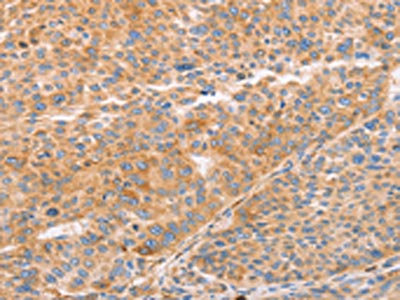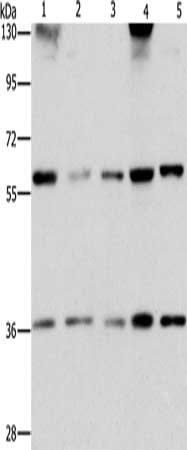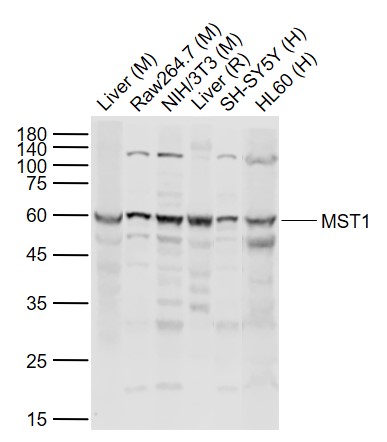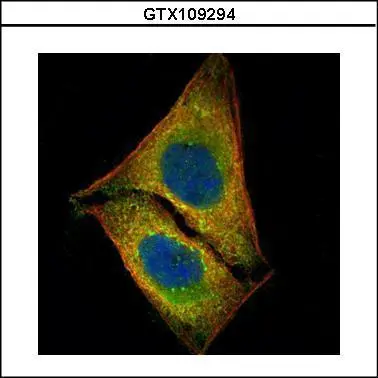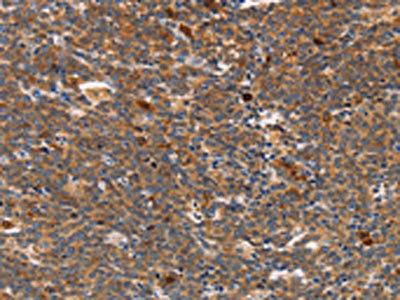
The image on the left is immunohistochemistry of paraffin-embedded Human Lymphoma tissue using CSB-PA168071(STK3/STK4 Antibody) at dilution 1/70, on the right is treated with synthetic peptide. (Original magnification: x200)
STK4 Antibody
CSB-PA168071
ApplicationsWestern Blot, ELISA, ImmunoHistoChemistry
Product group Antibodies
ReactivityHuman, Mouse
TargetSTK4
Overview
- SupplierCusabio
- Product NameSTK4 Antibody
- Delivery Days Customer20
- ApplicationsWestern Blot, ELISA, ImmunoHistoChemistry
- CertificationResearch Use Only
- ClonalityPolyclonal
- ConjugateUnconjugated
- Gene ID6789
- Target nameSTK4
- Target descriptionserine/threonine kinase 4
- Target synonymsKRS2, MST1, YSK3, serine/threonine-protein kinase 4, STE20-like kinase MST1, hippo homolog, kinase responsive to stress 2, mammalian STE20-like protein kinase 1, mammalian sterile 20-like 1, serine/threonine-protein kinase Krs-2
- HostRabbit
- IsotypeIgG
- Protein IDQ13043
- Protein NameSerine/threonine-protein kinase 4
- Scientific DescriptionSterile-20 (Ste20) is a serine/threonine kinase in Saccharomyces cerevisiae that is involved in relaying signals from G protein-coupled receptors to cyto-solic MAP kinase cascades. Mammalian protein kinases that display sequence similarity to Ste20 are divided into two groups, the PAK subfamily and the GCK subfamily. The mammalian Ste20-like kinases (MST kinases), also known as Krs proteins, are members of the GCK subfamily. Ksr-1 (MST-2) and Ksr-2 (MST-1) are both direct substrates of caspase-3 that accelerate caspase-3 activation.
- ReactivityHuman, Mouse
- Storage Instruction-20°C or -80°C
- UNSPSC41116161

